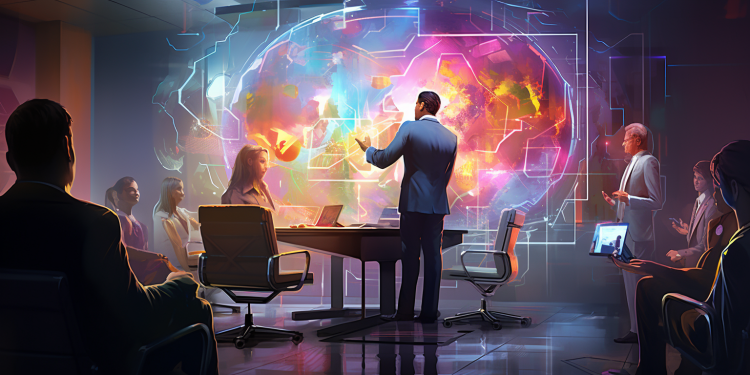Generative AI: A Game-Changing Technology
“Generative AI is not just a technology or business trend — it is a profound shift in how humans and machines interact.” – Mary Mesaglio, VP Analyst at Gartner
The human-machine relationship is rapidly evolving, especially with the emergence of generative AI. This technology has the potential to completely transform enterprise processes, decision-making, strategy, and more. It’s no longer just an IT initiative; AI adoption should now be considered an enterprise initiative as a whole.
To stay ahead and reap its benefits, executives need to prioritize their AI ambitions and focus on AI-ready scenarios for the next 12 to 24 months. Gartner analysts provided valuable insights and predictions on generative AI at the recent IT Symposium/Xpo, highlighting its significance and impact.
The Path to Gen AI Adoption
“Nearly three-quarters (73%) of CIOs polled by Gartner said their enterprise will increase funding for AI/ML in 2024. Similarly, 80% said their organizations are planning on full gen AI adoption within the next three years.” – Gartner
According to Gartner, 2024 will be the year when generative AI becomes democratized, with organizations around the world embracing its capabilities. This shift is driven by the convergence of pre-trained models, cloud computing, and open source technologies. By 2025, Gartner predicts that 90% of organizations globally will view AI as a workforce partner.
However, this transformation also brings challenges. AI Trust, Risk, and Security Management (TRiSM) will become crucial for organizations to address issues such as data protection, model drift, and AI-specific security. Additionally, the rise of machine customers (“custobots”) will require enterprises to rethink their sales, marketing, and HR strategies.
- AI-augmented development
- Continuous threat exposure management
- Sustainable technology
- Platform engineering
- Industry cloud platforms
Gartner also identifies two types of AI in enterprise: everyday AI and game-changing AI. Everyday AI enables workers to enhance productivity, while game-changing AI has the potential to disrupt business models and entire industries. CIOs and C-suite members should consider opportunities and risks across back office, front office, new products and services, and new core capabilities in their AI ambitions.
“Being intentional and having meaningful conversations about the kinds of relationships people want to have with machines.” – Mary Mesaglio, VP Analyst at Gartner
It’s essential for organizations to move beyond short-sighted productivity gains and focus on building meaningful relationships between humans and machines. Digital transformation should not be the end goal but a means to achieve desired outcomes. ROI considerations, productivity gains, and technological advancements should be balanced with intentional conversations about how humans and machines can work together harmoniously.
Successful AI implementation requires clear organizational values, AI-ready data, AI-ready security, and strategic questioning of technology. Enterprises should establish “lighthouse principles” that align with their values, with the CEO playing a crucial role in driving these values throughout the organization.
Ultimately, the future of AI in enterprise lies in prompt engineering, effective questioning, and upskilling existing technology and business experts. By embracing generative AI and developing a symbiotic relationship with machines, organizations can unlock new possibilities, streamline processes, and revolutionize their industries.










